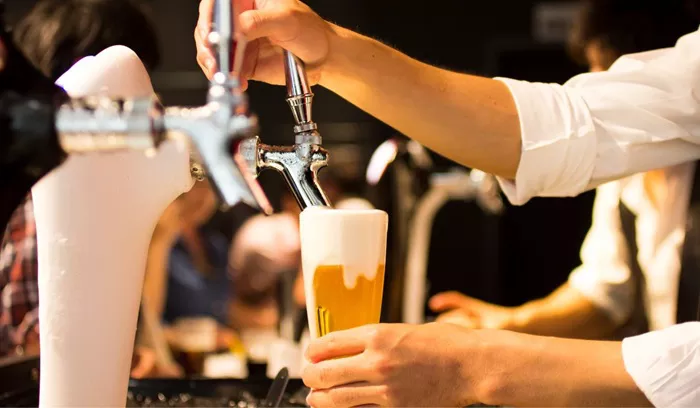Maryland residents may soon be able to buy beer and wine directly from their grocery stores, as Governor Wes Moore (D) champions a long-debated proposal to lift the state’s decades-old ban on such sales. Moore, who formally backed the plan on Wednesday, argued that the change would enhance consumer choice and level the playing field for local businesses.
For more than 45 years, Maryland has been one of only a handful of states that prohibits the sale of alcohol in grocery stores. Moore’s proposal, if enacted, would position the state alongside neighboring regions like Virginia, Pennsylvania, and Delaware, where such purchases are already permitted.
“We are the only one of our neighboring states to ban the sale of either in grocery stores — resulting in less consumer choice and putting our stores at a disadvantage,” Moore said in a statement provided to The Washington Post. “Lifting this ban puts consumers first and ensures fair competition in the marketplace.”
Currently, alcohol sales in Maryland are confined to liquor stores, many of which are independently owned. A few grocery stores have been granted limited permission to sell alcohol due to a grandfather clause in the law, but the broader ban remains in place. Maryland is one of just three states — alongside Alaska and Rhode Island — that prohibits grocery stores from selling beer, and one of only 10 states that bans the sale of wine in such stores.
The proposed change has garnered support from both the public and prominent state leaders, including Sen.-elect Angela Alsobrooks (D). Alsobrooks has argued that the reform would not only benefit consumers but also help address food access issues in underserved areas. She suggested that allowing alcohol sales in grocery stores could attract new grocers to urban food deserts, particularly in Prince George’s County, where residents often struggle to find accessible retail options.
However, the proposal has faced significant opposition from the state’s influential liquor wholesalers and small business owners. Critics, including Del. C.T. Wilson (D-Charles), a long-time skeptic of alcohol sales expansion, warn that it could threaten the livelihoods of independent liquor stores. Wilson expressed concerns that small, local stores would lose business to large grocery chains, particularly those based outside Maryland.
“There are public health and safety concerns as well,” Wilson added, citing fears of increased underage drinking and drunk driving. “This needs to be done in a way that protects small businesses.”
Despite the opposition, Moore remains optimistic. He has called on lawmakers to pass a bill during the upcoming legislative session, which begins on January 8. Del. Marlon Amprey (D-Baltimore) has already pledged to reintroduce legislation next year that would allow grocery stores to purchase liquor licenses, though his previous attempt was unsuccessful. Amprey has emphasized his intention to balance economic growth with protection for small businesses.
“It can be an economic engine,” Amprey said, noting that the proposed changes could help generate modest revenue for the state and local governments through the sale of additional liquor licenses.
A previous analysis of Amprey’s bill found that while it would not significantly impact the state’s overall budget, it could create new local revenue through liquor license sales and enforcement efforts. Small grocers were expected to benefit from the new alcohol sales, while independent liquor stores might face financial challenges.
Despite Moore’s push, some legislative leaders remain cautious. Senate President Bill Ferguson (D-Baltimore City) acknowledged that he would consider the proposal but stressed that any changes would need to address the concerns of opponents. Legislative priorities for the upcoming session, Ferguson’s spokesman said, are likely to focus on more urgent matters, including balancing the state budget and addressing the looming budget deficit.
Moore, however, expressed confidence that a compromise could be reached. “As other states have done, I am confident that the General Assembly will be able to address the concerns from opponents of this policy change in a thoughtful manner,” the governor said. “I look forward to working with our legislative partners to advance this overdue change in policy to advance consumer choice and economic competitiveness.”
The proposal’s outcome will depend on how legislators weigh the benefits of convenience and economic growth against the potential impact on small businesses and public safety. Despite the hurdles, Moore’s continued support suggests that alcohol sales in grocery stores may soon become a reality in Maryland.
You Might Be Interested In:


